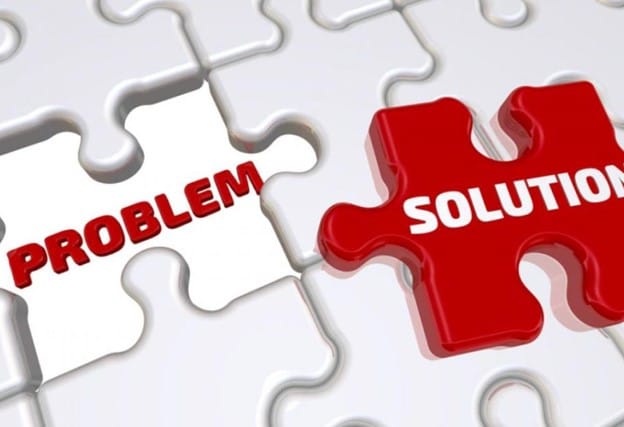A Thing or Two About Sales

And I don't know a thing about sales.
I mean, I’ve sold a few things on eBay before, but I’ve never tried to make a living out of selling. Today, I’m staring down the road of career change and looking at all the options, I’m thinking about sales, too. Whether you're a natural salesperson, you're a candidate for a job, or you looking to date someone new, here are some thoughts on what it means to enter into the world of sales.
Some years ago, I remember watching a Mark Cuban interview where he was asked the question of if he had to do it all over again, how would he start on the journey to getting rich. He said he’d find a company and take a sales job, and work to become economically irreplaceable to the company.
Maybe salespeople are just solving problems for other people all day long. Of course, it's probably not that simple, nothing ever is — they have to find the people who have the problems they can solve, and that might take a lot of work. They have to build relationships, and that takes a lot of work, too. But they end up solving problems, helping people out and maybe they get to earn a decent living along the way.
My sales experience has typically been one that makes me feel like I need a shower, and I couldn’t possibly be one of “those” people. But then I had a moment. I love solving problems, and the more complex, the better. What if I could find a job helping people solve problems?
Maybe there's an opportunity here to look at sales in a sort of "first principles" way to understand what exactly it is about sales that I've experienced or maybe, I could get better at. After all, Cuban must be onto something.
How about a recent case for contrast? A few weeks ago, I decided that my home drinking water could use an upgrade. I’d been recommended to try reverse osmosis water and I thought I’d seek it out. A seemingly simple problem with a range of solutions, I hoped.
I called the local water services company who specializes in reverse osmosis products and made an appointment. What follows here is a case study of a sales experience gone wrong.
After letting him in, we sat down at the kitchen table, and he proceeded to educate me on how bad the local water in the area scores on his company’s water grading chart- with a briefcase. The entire presentation was on laminated sheets of colorful grid arrays. After an hour, I told him that I understood that my utility water could use an improvement (that’s why I called his company), and that I was ready to look at the products on offer to make a selection. Flushed, the young salesman asked, if he could finish his sales pitch to which I replied with a question, “Of course, but how long have you been doing this work?” and he told me that I was his first customer. “Like, first customer ever??” I was shocked to hear the affirmative.
I thought to myself, “What a brave young person. He’s doing ‘door-to-doors’ in his early twenties, in 2024, no less. After a three-hour house call, briefcases, laminated sheets, and test tubes, the sales team could not tell me which product they had that could get me to the cleanest drinking water.
Needless to say, it didn’t work out for me and the water company’s sales team that day.
Sales is about helping people solve problems.

Knowledge is a mirror.
They made a few key mistakes…In my opinion, their mistakes were textbook examples of those made by people who don’t know themselves, don’t know others, and/or cannot reflect on the interplay between the two.
· They failed to value their (or my) time. That sales appointment lasted nearly three hours after I was ready to make a purchase. Could you imagine standing at a register for that long?
· They had a serious problem-solution mismatch. I have never needed a Bluetooth controlled water faucet- and I sincerely hope I never do. I had to show them their product offerings on the company website to help guide them on guiding me to a more appropriate product.
· They failed to outcompete. During my visit I asked the salesperson what about their products was it that made them perform at a price premium of over 15 times that of their competition. He told me that it was their recognizable nationwide brand.
Insider secret: I’m not a fan of brands. I am a fan of trust.
If they knew themselves, they might value time. They might know their product. At a minimum they would not have taken so long to get to product selection. We had to bust out the test tubes and do water quality (color) sampling for 90 minutes before I could get to the handwritten $30,000 estimate (not kidding) before I watched the “discounts” get it down to $3,000 with a confident “here’s what I can do for you today” proclamation.
If they knew others (their customer)...In the beginning of the consultation, we talked about why I called them, but I never got the impression they understood my problem. I said I’m interested in whatever product they had that could get me to the cleanest water possible, but I never got an answer to that question.
If they reflected on what was happening during that time, they might have been able to see that I had a problem, and they had a solution. From my view, this could not have been an easier sell. Maybe their antiquated approach to selling was getting in their way. I mean, the only briefcase I remember was in Pulp Fiction. Yet, we spent no time on this part of the conversation.
A while back, I was listening to a Dave Ramsey podcast, and he told his listeners that “Sales is not about selling. It’s about building trust and providing value.” A slow unpack for those first timers. It’s the act of building trust and the act of providing value. Building trust is being true to your word, communicating effectively, taking time to hear a customer. Providing value for customers comes in the quality of the conversation they’re having with you, the quality of the product you provide, and the quality of the buying process.
Here's the bottom line: from the moment I opened the door and saw a very young person with a briefcase, all the way up until I had to ask them to leave 3 hours later, we never built any trust that they could solve my problem with their products. And neither one of us can get that time back.

Sales is not about selling. It's about trust.
With my lived experience in mind, here are a few pro tips for anyone selling anything, including themselves…
· Never sell anything that you don’t believe in. Whether it’s yourself, insurance, or lemonade on your neighborhood sidewalk, find the highest form of altruism in the product and sell those strengths in a way that you (and the customer) can reasonably believe it is the best product available. If you don’t believe it is, find another product that is and sell that.
· Listen to the customer. If you sell shoes and your customer is looking for a neutral running shoe, don’t try to upsell a pair of Wing-tipped Oxfords in the hopes that he may have to run in them some day. Listen to what they are telling you they need and be honest about the product that meets their needs.
· Learn from your feedback loops. That first sale may be elusive. Even more so when you can’t read the wind. If someone is telling you that your product pitch has holes in it, you may want to close those gaps. The water company’s pitch relied far too heavily on the “discounted approach” to make me feel like I was getting a good deal. They hoped the “good deal” feeling would be enough to overcome the price disparity and for me, that simply was not the case.
In my case with the water company, I’m having a hard time believing that they truly believed in their product. I think they believed more in the company’s brand than their product. But in my case, I couldn’t make the brand-clean water connection. If you think about it in terms of selling yourself, it starts with being honest. Never catfish a potential customer, employer, or date. In fact, just be honest with yourself about yourself and you’ll never have to worry about any of this. If what you’re selling is a good product, it will sell itself. Your job is to facilitate the transaction.
Most people are listening to respond. Very few are listening to understand. Ever had a conversation with someone who couldn’t put their agenda aside? Or someone who loved to bring straw men into discussions? What about a conversation where someone kept asking open-ended questions? There’s a demonstration of patience the speaker (or person with the problem, also called a customer), will sense when a listener is working to understand their problem. This act will create a connection through which a seller can make an offer. But his only occurs when the customer is certain they’ve been heard. In my recent case, I had to strap in for the “but wait, there’s more” demos before I could get an acknowledgement.
Feedback loops happen when outputs affect a system by triggering new responses, something like stimuli or catalysts. In the selling process, customers are always providing feedback. If you care too strongly about your product, some of it may feel brutal. In the case of job hunting, when there is no response on a resumé from a prospective employer, it hurts. Especially if you think you’d make a great addition to their team. But there’s feedback in no response. It either means they’re no longer looking, not looking for someone with your resumé, or not looking for you specifically. That output from the system should trigger you to keep looking, keep working on your resumé, or keep working on yourself. With the right perspective, feedback is a tremendous resource and encourages us to become the best version of ourselves.

So, what do we do now? How do we put this into practice?
Improve your personal buying process.
For a deeper examination of the seller-customer relationship let’s add perspective and flip the proposition. A quick Copilot search for improving the buying process will turn up 5 stages to improving our buying process.
Sense. First and maybe too obvious to even point out is the process of reading the terrain. This includes everything related to you, the job, the sale, the negotiation, whatever. Raise your personal IQ and EQ of the area in which you plan to operate. In the case of looking for a job, understand what you’re offering and what the employer, in this case, the customer is buying.
Consider. Just like the know others piece. List out the possible needs and wants in the selling space. Know and understand what a good fit is and perhaps more importantly, know what a good fit is not. If you're dating, you may just be interested in the "urge to merge." If that's the case, you're going to have to consider your dating market. If you’re a mid-level manager, don’t go looking for director positions just yet. Maybe a senior manager role might be a better fit especially if you’re looking at changing industries. Jim Collins, author of the bestselling book From Good to Great, is famous for saying “people are not your most important asset. The right people are.” The same goes for employers. Not all companies are equal and if you’re selling yourself as an employee, not all companies are important, but the right companies are, though. Your job is to find a good fit and make your best sales pitch with your resumé.
See/listen to understand. Improving the ability to see and listen to the feedback we get is part of the learning process. Even no feedback has value and is telling us something and most likely it’s telling us to try a completely different approach.
Digging more deeply, the feedback process asks us to do a few things. First, it requires us to accept the challenge of self-improvement. When we initially receive feedback that opposes our sense of the world, our brain detects it as a threat and sends neurochemicals to signal to our body to be on alert. We notice our heart rate increasing and we feel uneasy. Yet, it's our response to this unknown situation that determines whether we can capitalize on it as a learning moment. We must be capable of learning something and that means accepting that we didn’t get everything right the first time. Second, it allows us to slow down and take some notes on ourselves. I heard somewhere that we need to get out of the commentary in our head and listen to what the environment, our partner, or our colleagues are telling us. Finally, feedback offers us an opportunity to practice self-compassion. Ultimately, we’ve got to remind ourselves that our self-worth is not based on the number of rejections, the last sale, or the number of call backs. Self-compassion will allow us to respond with less emotion and more clarity. That clarity will help be ready to incorporate feedback, and to know what to do with it.
Feedback is for the mature
If we can think about ourselves and others in a relational way, we are doing the know yourself, know others, and reflect process. We’re on the journey at this point and every step we take is no longer simply transactional. It’s the first step to building trust.
Understanding this first piece is critical to beginning to add value. If we can provide value with every comment in our conversation, we can continue to build trust. But as most will tell you, walk this line. Try not to give everything away for free, but don’t come off as cryptic and secretive.
Finally, don’t be afraid to invest in yourself. Investing in a journey of self-discovery is not merely a luxury; it is a strategic step towards success and growth. By delving deeper into your own being, you gain a profound understanding of your values and beliefs, ultimately enabling you to remain synchronized with them. This, in turn, unlocks a powerful tool - integrity. Integrity is the foundational element that resonates with clients and builds trust. When your clients experience your unwavering commitment to your principles, they are more likely to open up and share vital information about themselves and their organizations. This invaluable insight allows you to uncover the hidden truths that often go unspoken - the gap between their real needs and their perceived ones.
So, in a first principles way, I think everything may not be "about" sales, but selling anything is about knowing yourself, through integrity, knowing others and their concerns, and then reflecting and building trust. Through that trust, we can try to provide some value to a customer and structured appropriately, we can receive some reward in the exchange. Finally, don’t forget to capitalize on the feedback you receive to help you become a better person. After all, isn’t that what this is all about?



Member discussion